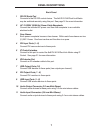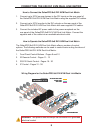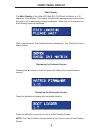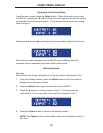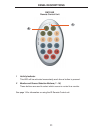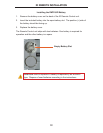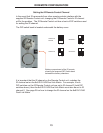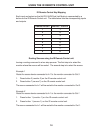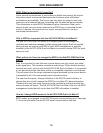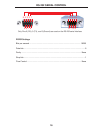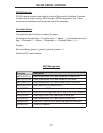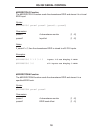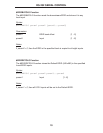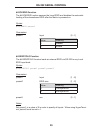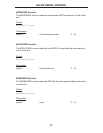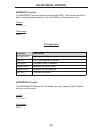
15
EDID MANAGEMENT
EDID. What is it and what is it used for?
Under normal circumstances, a source device (digital and analog) will require
information about a connected device/monitor to assess what resolutions
and features are available. The source can then tailor its output to send only
resolutions and features that are compatible with the attached device/monitor.
This information is called EDID (Extended Display Information Data) and a
source device can only accept and read one EDID from a connected device/
monitor. Likewise, the source an only output one resolution for use by a
connected device/monitor.
Why is EDID so important with the 8x8 DVI KVM Dual Link Matrix?
The 8x8 DVI KVM Dual Link Matrix is a complex piece of technology that
replicates and switches between multiple inputs and outputs. Each connected
source device will require one EDID to read. EDID management is carefully
handled by the 8x8 DVI KVM Dual Link Matrix to provide a single EDID for each
source to read.
What options do I have to manage the EDID in the 8x8 DVI KVM Dual Link
Matrix?
First, it is important to note that each source device can only output one video/
audio signal type. This includes resolutions and timings. When multiple devices/
monitors are used, such as with the 8x8 DVI KVM Dual Link Matrix, it is important
to use devices/monitors that have similar or compatible resolutions and features.
This will ensure that the single video/audio signal produced by the source device
is accepted by all of the connected output devices/monitors.
The user has the option, through utilization of the RS-232 serial interface, to
choose how the unit will manage the EDID from multiple DVI devices/monitors.
Therefore the user has some control over the resolutions and features that the
source devices will output. The 8x8 DVI KVM Dual Link Matrix has a Local EDID
management mode that will control how the EDID information is handled.
How do I change EDID modes in the 8x8 DVI KVM Dual Link Matrix?
EDID modes are managed via the RS-232 serial communications port. See page
17 for more information on the RS-232 serial communication features.



